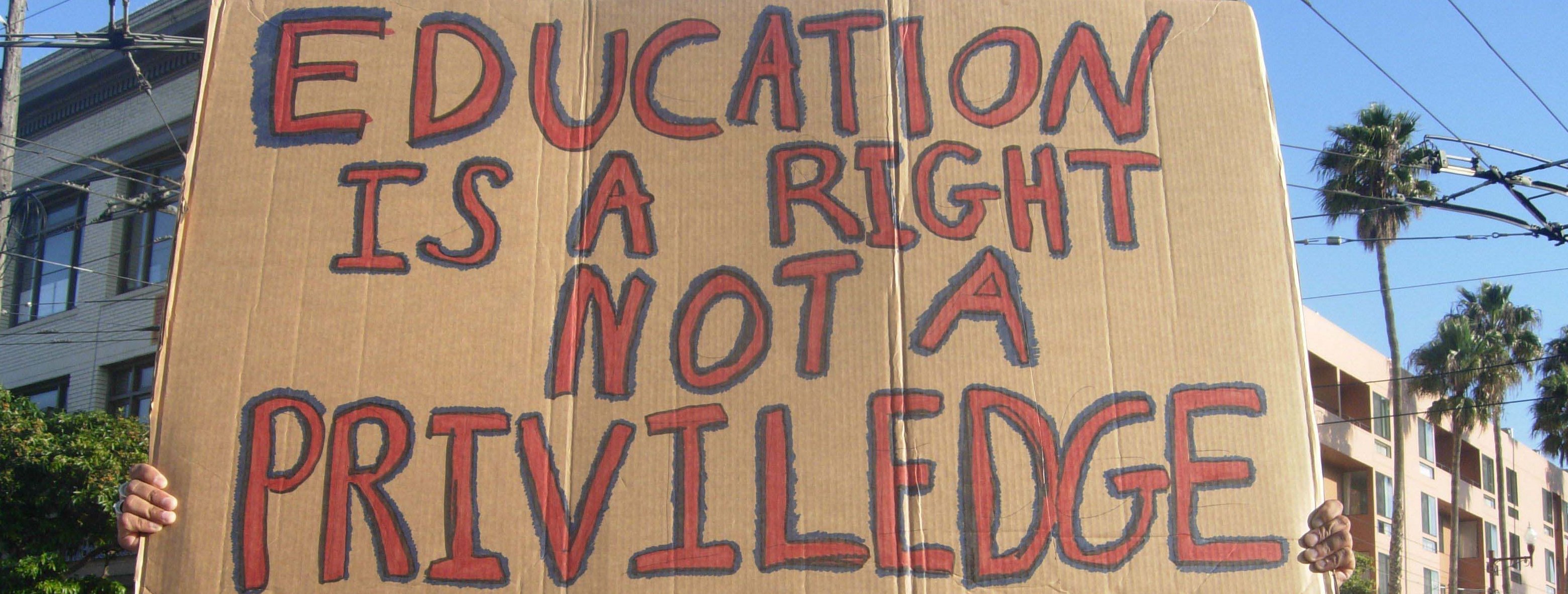It’s been a busy, uncertain few weeks in the Union offices; the Government have presented us with a big old sack of policy changes regarding Higher Education. Between the BIS Green Paper and the Autumn Statement, there is a lot to lament.
The green paper, Higher education: teaching excellence, social mobility and student choice potentially represents a seismic, likely detrimental change for students. The 100+ page document, which is irritatingly vague in its language, sets out plans to marketise and deregulate the university sector, paves the way for variable and increasing fees, aims to limit the freedom of Students’ Unions and (probably most worrying) transfers the power to set fee caps to ministers.
In a nutshell, the green paper is a monster cloaked in spin. The green paper’s introduction is filled with claims that the changes will improve social mobility and help prospective students make more informed choices. In reality, the paper at no point outlines how social mobility will be improved, in fact it doesn't take many logical steps to conclude that it will do just the opposite and deter students for lower socioeconomic backgrounds from applying to university.
In terms of student choice, the green paper sets out plans to make courses deemed more valuable, higher quality institutions and degrees with best employment prospects more expensive. This essentially means that STEMB subjects will become more expensive, while arts subjects will be decimated. To me this suggests that only those who can afford the higher fees will have more choice. Speaking as someone from a lowish income background, I can tell you for free that I would have seriously considered not applying to university had I been in the 9K fee generation. I most certainly wouldn’t have come to medical school if my tuition fee debt was going to exceed £5,000 a year. A sample size of 1 may not be particularly scientific, but I can say anecdotally that I am not the only kid from a less well off background to consider foregoing higher education due to cost. It is worth mentioning that there is almost no mention of what will become of the loan system in the green paper.
It is this rationale that leads to the fairly widespread feeling that the green paper’s proposals will lead to a ghettoization of higher education. Students like me who can’t afford to take on such a huge debt will go to low quality institutions and gain degrees of a perceived lower value with reduced graduate employment prospects. Conversely, those who have the money and family security to go somewhere more expensive are theoretically set for life. This does not scream improved social mobility to me. It suggests very strongly that education will no longer be a right, but will become a privilege, a commodity and the preserve of the wealthy.
The Autumn Statement also slipped some cheeky changes through, namely a retrospective change to student loan terms and the scrapping of bursaries for health students.
The changes to loan terms are an interesting one; as far as I can tell, if a commercial loan company tried to pull something like this they would take a pretty hard beating from regulators. There is also speculation that the proposal may face legal challenges. The plan is to nominally fix the repayment threshold at £21,000 pa; the previous agreement was that the threshold would rise with inflation; this decision was taken entirely in opposition to consultation. Students entering university after 2012 are facing a real-terms drop in the income threshold at which they start repaying their student loan. The Government’s consultation response openly admits that this is likely to have a disproportionate detrimental effect on women, students with disabilities, BME students, students with dependents and low-middle income students. Furthermore the IFS estimates that the change will cost graduates £3,800 on average. Pretty certain that isn’t what anyone signed up for.
Finally, the Autumn Statement sets out proposals to scrap bursary funding for NHS funded students, including nursing, midwifery and allied health professions (for example: physiotherapy). However it is unclear whether the change will affect medical students, who are funded by the NHS Bursary system for their final few years. As a medic I may be biased, but it seems to me that removing bursary funding will act as a major deterrent to people wanting to train in these undeniably essential disciplines.
So there it is: the broadly quite depressing changes afoot in higher education. I’ll be the first to admit that they don’t make the most thrilling reading – believe me, I’ve spent a lot of time scrutinising the various government documents. That said they are major changes for students to be aware of and stand up against, now available in digestible (ish) form. I am well aware that Imperial displays an embarrassingly high level of political apathy compared to other universities, but I’m interested to see how many get up in arms when you find that the cost of your STEM degree is likely to rise.
I am currently working on putting together a response to the Green Paper. If you are interested in feeding into this, please do not hesitate to get in touch with me.


